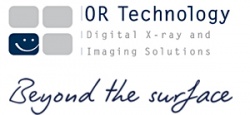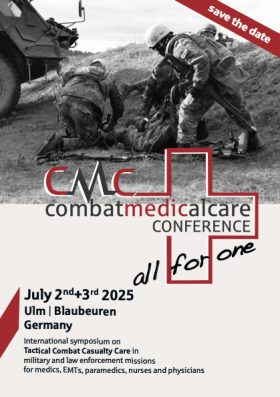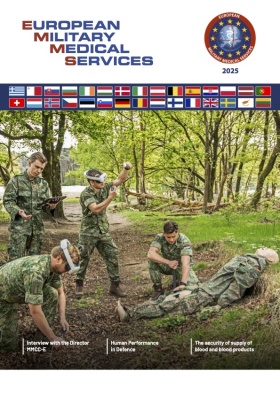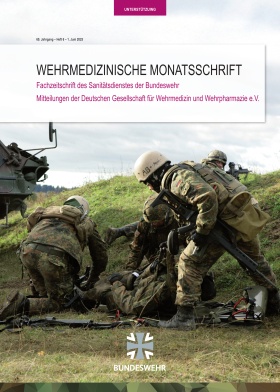
Article: D. FISCHER (GERMANY)
The Threat to Humanitas in Asymmetric Conflict
A Challenge for Military Medical Ethics
Among the multiple problems Military Medical Ethics has to face, the threat to Humanitas in asymmetric conflict appears to be a particular challenge. It is worthwhile to explore such a fundamental phenomenon as the Humanitas in the light of the new wars, as it is of crucial importance for the medical services.
Introduction
Since one can remember, it is war that has been particularly confronting mankind with the question of what it means to be human. Humanity being a characteristic trait of man, in time of peace, often remains unspecified as an apparent given, and one only becomes aware of it in the light of the atrocities which man is capable of bringing upon him-self and others.
The history of mankind displays the efforts often made in vain to avoid the temptation to annihilate itself. To this end, it makes use of the ideal of “Humanitas” which man has always been conscious of, being a reasoning being. However, its actual application confronts him with a continuous and tremendous challenge.
Among the multiple problems Military Medical Ethics has to face, the threat to Humanitas in asymmetric conflict appears to be a particular challenge. It is worthwhile to explore such a fundamental phenomenon as the Humanitas in the light of the new wars, as it is of crucial importance for the medical services.
This shall be the starting point for the following exploration of the importance of training and education in the areas of Military Medical Ethics and In-Field Medical Ethics. Training and education in Military Medical Ethics and In-Field Medical Ethics have significant importance for the staff of military medical services in general. That surely is true in a wider sense even if I refer to the group of military medical doctors throughout the following passages.
The meaning of Humanitas in asymmetric conflict
The so called new wars are characterized by a certain asymmetry, referred to by the military historian Herfried Münkler once as the result of intentionally turning away from an orderly symmetry and the normative self-commitments of the different parties to a war. In this context, asymmetric actors are characterized by their intent to abuse the continuing self-commitments of regular military staff by accusing them to violate humanitarian law, while at the same time they do not consider it as binding for themselves.
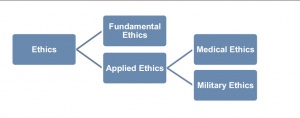 Medical and Military Ethics
Medical and Military Ethics
The lack of adhesion to rules, that is to say the absence of a commonly shared set of norms and associated self-commitments, turns the asymmetric war into a particular moral challenge. The new wars as asymmetric conflicts represent not only a legal challenge concerning the humanitarian law, but also a moral challenge with regards to the underlying ethos, that is to say with regards to the shared values and norms by the community of peoples. Independent of the question regarding the applicability of the humanitarian law in case of an asymmetric conflict, the validity of the ethos remains. In the past, the legal frame of the humanitarian law had the purpose of ensuring the continuity of the moral integrity of the legitimate participants in a war. Today, the question needs to be answered how one’s own moral integrity can be assured in face of a conflict without any rules. This is crucial as the illegitimate opponent has in mind not just physical, but also moral destruction. Their primary objective consists of the destruction of the international community adhering to commonly shared norms and values. These commonly shared norms and values find their utmost density in the idea of humanity. The Red Cross and Red Crescent are representatives thereof. In addition to being a sign of protection in a legal sense, they also have a symbolic meaning: They are the essential sign of humanity. The fact that in an asymmetric conflict Red Cross and Red Crescent can no longer be displayed, but need to be covered up in order to protect vehicles, shelters and personnel, points towards the threat to Humanitas in asymmetric conflicts.
Remembering Solferino
In order to give meaning to Humanitas in asymmetric conflicts and any threats it might face, it is essential to revert back to Humanitas as the original intention of humanitarian law. This is of particular importance for Military Medical Ethics in general, as well as Infield Medical Ethics. It is exactly 150 years that the Geneva Convention was signed on 22 August 1864. This represents a first major achievement in the attempt of Henry Dunant (1828 - 1910) to humanize war.
The signature of the contract in 1864 took place in the light of the experiences gathered by Henry Dunant during the battle of Solferino. These were published in his report Un Souvenir de Solferino describing the fate of 6000 dead and 25000 wounded soldiers.
In a very impressive manner Dunant describes the atrocities of war, of which the battle of Solferino remains a paradigm until the present day. Being confronted with the horrors of war, the idea of Humanitas consistently grew in Dunant, and he decided to become a major advocate for it. In a very impressive manner, a quote of the US philosopher William James (1842 - 1910) from the year 1897 sheds light on the initial intention of Henry Dunant: It is essential to listen to “the cries of the wounded”.Looking after the wounded of war had become a major question for Dunant, and needs to be of interest for the whole of mankind. As a result he claims the creation of aid organisations and requests elaborating international, contractually binding and sanctified basic principles, in order to protect the work of such organisations.
The success of Dunant might be based on different reasons, but no doubt there is particular importance to be derived from his claim to focus on the specific suffering of man. For him the “cries of the wounded” become an appeal for Humanitas; listening to these “cries of the wounded” becomes an expression of humanitarian conviction, which features the determination to attend to the needs of all humans without any differentiation. The phrase “Tutti fratelli!” which has been circulating when caring for the wounded of Solferino is being reflected later on as part of the claim for neutrality of the Geneva Convention. The “benefit of neutrality” – to use the exact wording – allows Dunant to totally commit himself to serve the others.[8] The freedom to attend other human beings as a human being, and without any differentiation, constitutes the foundation of Henry Dunant’s understanding of humanity. This was not, cannot and shall not be taken for granted!
Humanitas as a philosopher’s problem
Remembering Solferino is without any doubt one of the most important documents on the humanitarian idea ever written. When elaborating the meaning of Humanitas in the frame of military medical ethical education, the report of Henry Dunant should be a compulsory element of the curriculum in the medical services.
Concerning the history of philosophical ideas and discussing the question of what it means to be human goes back to Greco-Roman times. Take the significance of Plato’s “Philantropia” as an example, or, alternatively, Cicero’s “Humanitas”. Unfortunately, the frame of this article does not allow us to explore the idea of Humanitas in greater depth from a historical point of view. Such an analysis would demonstrate to us that Humanitas is a primary example for which philosophy cannot give an ultimate conclusive answer. However, this does not mean that the topic could be ignored. The tricky nature of this phenomenon becomes apparent even to non-philosophersif one tries to come up with a more or less satisfactory definition of what Humanitas actually means. I suggest you to take some time and try to think this through. I can promise you it’s a thinking experiment that will occupy you for a while.
Without trying to give a positive definition of Humanitas – something I believe to be impossible – there are surely some main traits to be discovered when attempting to speak about Humanitas. For instance, the US-German philosopher Hannah Arendt (1906 - 1975) stressed the idea of friendship as a fundamental characteristic of Humanitas. Concerning the history of the idea of Humanitas, this idea of friendship has been closely linked to the one of brotherhood as expressed by the motto “Tutti fratelli!” A fascinating example for this is to be found in the philosophical thinking of the French philosopher Gabriel Marcel (1889 - 1973).At the roots of both, friendship and brotherhood, you can find what the philosophical tradition used to call human kindness. (Please allow me a very important statement in this context: Human kindness does not mean weakness. Or as the Italian Claudio Aquaviva (1543 - 1615) once said: “Fortiter in re, suaviter in modo.” A sentence I would translate as “Determent and courageous with regards to what is at stake, but kind and respectful in your interactions.”
Regardless of whether you base your own reflection on the phenomenon of Humanitas on brotherhood or friendship, both have their source in human kindness, which provides the openness towards others. This openness towards others surly is very fragile. If it is given up man finds himself at the threshold of atrocity.
Humanitas as a medical doctor’s problem
Thinking about the question of what Humanitas actually means is far more than a topic that can be left to abstract speculations of philosophers. It is at the centre of the medical doctor’s existence (and not just since Dunant). Allow me to be even more frank: It is the medical question of all and at the origin of all medical research, teaching and professional conduct. It is not surprising as such that Humanitas appears right at the beginning of the key document of the medical profession, the Declaration of Geneva of the World Medical Association. Already the first sentence reads: “At the time of being admitted as a member of the medical profession: I solemnly pledge to consecrate my life to the service of humanity.”This text has been published in 1948 and been revised last in 2006. It reflects a very long tradition of medical self-commitment. In this context the Hippocratic Oath can be regarded as the key example of self-commitment in professional ethics. Far from being an all comprehensive compendium of instructions for professional medical conduct, the Declaration of Geneva serves primarily as a reminder; it requests ethical reflection on all medical conduct in all its dimensions.
The idea of the philosophically trained medical doctor
The complex task of analysing the meaning of Humanitas is a very good example why even Immanuel Kant (1724 - 1804) reflects medicine as very close to philosophy in his paper The Conflict of the Faculties (Der Streit der Fakultäten), published in 1798.[13] This proximity is also reflected by the tradition of “ ” (the philosophical medical doctor), which is also referred to in the Corpus Hippocraticum as “ ” (“the philosophical medical doctor is equal to a god”). The significance of a philosophically trained medical doctor has been pointed out not least by Claudius Galen (130 - 201 BC) in his treatise Quod optimus medicus sit quoque philosophus (The best doctor is also a philosopher).
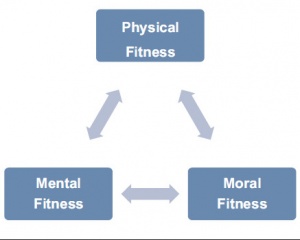 The correlation between moral, mental and
physical fitness.
The correlation between moral, mental and
physical fitness.
The historical evolution that has led to a progressive sacrifice of the ideal of the philosophical medical doctor from the 17th century onwards could be commented in many ways. Without any doubt, there has been an ever increasing dominance of natural-scientific thinking compared to humanities or arts. For instance, this is reflected by a statement made by Bernhard Naunyn (1839 - 1925) in 1900: “Medicine will become a natural science, or it will end to exist.” Without questioning the significance of natural-scientific research for diagnosis and therapy, it appears however questionable if medical conduct can be exclusively reduced to natural-science alone. Medicine will always also depend on philosophical reflexions, such that the following remark – also made by Bernhard Naunyn – remains valid: “As medics are dealing with humans, humanity and respect impose constraints.”
Saying this, it does not mean that philosophical medical questions are only limited to a moral-philosophical nature. Please consider the questions about life and death, or health and illness, which ultimately cannot be answered from a natural-scientific point of view alone. Nonetheless, dealing with medical ethics ought to be the starting point for most medical students to reflect on the philosophical dimension of their profession.
The ideal of a philosophically trained medical doctor remains in many respects appealing, even today. However, in order to avoid any potential objections, I would like to state that it is not my intension to claim that all military medical doctors should become professional philosophers. Nevertheless, a minimum degree of skills beyond the pure natural-scientific and military reasoning is of significant importance, especially where moral decisions are at stake. To this end, a special way of thinking is needed, which an exclusively natural-scientific education cannot deliver. It is this which the ideal of the philosophically trained medical doctor refers to; it is the moral competence to take appropriate decisions. In this sense the ideal of the philosophically trained medical doctor appears as the ideal of the ethically trained medical doctor.
The classification of Military Medical Ethics and In-Field Medical Ethics
Ethical questions that need to be addressed in the frame of the education of military medical doctors and military medical staff require an extension of the areas of classical medical ethics. This need derives from the double function or role: medical doctor or staff on one hand and soldier on the other. This results in a number of questions that can be approached from both a military as well as a medical ethics point of view. Military and medical ethics are two examples of specific or applied ethics. They need to be distinguished from fundamental ethics, which primarily addresses fundamental questions of ethical conduct of individual people and its relevance in the overall social context.
Military Medical Ethics as a dedicated subject focus on highly specific requirements at the interface between military and medical ethics related questions. In addition to more general questions of Military Medical Ethics, specific questions related to the infield deployment of medical staff arise. These represent an important subset of Military Medical Ethics for which I suggest the term “In-Field Medical Ethics”.
The systematic research of genuine military medical ethical questions is the prerequisite of any ethical competences development in the frame of education and training of soldiers, either medics or non-medics, as well as civil staff in the medical services. The need becomes even more pressing in the context of any international exchange on ethical standards.
The international efforts into systematically researching Military Medical Ethics related questions have resulted in a number of corresponding publications in recent years. For instance, last year a group of authors working with Michael L. Gross and Don Carrick have published an extensive piece of work (Military Medical Ethics for the 21st Century). Already in 2006, Michael L. Gross has issued a series of questions on Military Medical Ethics in his monograph Bioethics in armed conflict: Moral Dilemmas of Medicine and War. The same author published Moral Dilemmas of Modern War: Torture, Assassination and Blackmail in an age of Asymmetric Conflict in 2010.In the same year Fritz Allhoff published Physicians at War: The Dual-Loyalties Challenge.Finally, reference needs to be made to the publication by Thomas E. Beam and Linette R. Sparacino: Military Medical Ethics.
Challenges of military medical ethics competence development
Military Medical Ethics related competence can be hardly transmitted as part of educational programs at civil medical schools. Regarding the training of medical officers, the question needs to be raised when, where and how this can best be done. Already the creation of general medical ethics related awareness and competence as part of undergraduate medical studies is non-trivial, and somewhat of a challenge. The curriculum related requirements and shear quantities of material to be studied often leave only very little time for an in depth reflection on medical ethics related questions. Furthermore, it is a fact that many ethical questions are difficult to relate to, if you are a medical student at the age of 20. Also, the transmission of any necessary philosophical fundamental ethics at the beginning of any military medical training turns out to be very difficult. Students perceive the subject matter as highly theoretical and detached from real life applications. Such aspects raise the question on how best to institutionalize Military Medical Ethics in research and education.
Moral fitness – A core competence of soldiers
The initially addressed threat to Humanitas in asymmetric conflicts results in a significant challenge, as a result of the one-sided cancellation of any ethical standards shared by the community of nations by an asymmetric opponent. In this context, the question needs to be answered how one’s own ethical competence affects other areas such as mental and physical fitness. It appears plausible to me, even if yet to be proven by dedicated and in depth military medical ethical research, that there is a direct correlation between moral, mental and physical fitness.
Any potential interactions would need to be captured. Does moral fitness have an impact on mental and physical fitness? What consequences result from educational deficits in the area of moral fitness on the others? Avoiding any negative impact should be a primary focus of Military Medical Ethics and In-Field Medical Ethics. A major problem arises in situations of self-doubt, for example in the frame of conflicting loyalties (dual loyalties challenge), which can produce serious conflicts of conscience (whether there is a relation between the moral fitness and the prognosis of post-traumatic-distress-syndrome (PTDS) seems to be a very interesting question in this context!). A profound understanding of potential Military Medical Ethics or In-Field Medical Ethics related dilemma, as well as potential solving strategies are of significant relevance for any associated education and training programmes.
Summary and outlook
The initial observation regarding threats to Humanitas in asymmetric conflicts has led us on a short historical excursion to the battlefield of Solferino and the effect it had on Henri Dunant and his successors with their definition of Humanitas. The moral philosophical expansion of the competences of medical doctors beyond military and natural-scientific expertise becomes vital in the light of “the cries of the wounded” and any potential moral conflicts military medical service personnel might face in the field. In order to provide appropriate guidance and orientation, a pure natural-scientific approach which does not capture this specific ethical and philosophical dimension of the underlying dilemma, does not suffice. It becomes necessary to provide military medical service personnel with an appropriate training and education, so that they can face the challenging decisions any soldier might have to take, while maintaining a healthy balance between moral, mental and physical fitness.
With regards to the medical-philosophical question on Humanitas, finding appropriate answer is far from easy; the formulation of the question itself is already of an important ethical nature! It is essential to re-ask this question on every relevant occasion, keeping the answer open and knowing quite well that a final theoretical solution does not exit. At least not in the sense of a positive definition that would be satisfactory from a natural scientist’s point of view.
Humanitas manifests itself exclusively on the back[h2] of specific situations requiring medical actions that crucially depend on listening and attending to “the cries of the wounded”. Ultimately, and at least in part, this sheds light on Humanitas as the mystery which man remains to him-self.
Author
Major MC (ret) Dr med Dirk Fischer
Address of the author:
Pfarrplatz 22
94336 Windberg
E-mail: [email protected]
Date: 01/07/2019
Source: Medical Corps International Forum (1/2015)







